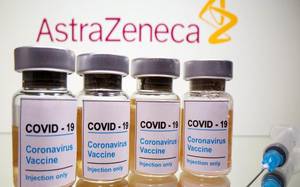Manas Dasgupta
NEW DELHI, Nov 27: Vaccines to bring an end to the threats from the Corona pandemic seems to be really on hand in India. The prime minister Narendra Modi has virtually confirmed people’s expectations of an early arrival of vaccines by deciding to embark upon a visit to the manufacturing plants of three vaccine candidates in India on Saturday.
Modi raised people’s hopes last week when he at his video conferences with the chief ministers earlier this week had asked all the state governments to plan for cold storage chains for storing vaccines. And his decision on Thursday to visit the vaccine manufacturing plants has further confirmed people’s expectations of an early end of the menace that has disrupted the normal lives, if the promised vaccines proved effective.
With preparations for vaccine development and distribution reaching an advanced stage in India, Modi on Saturday will embark on a three-city tour to take stock of the Covid-19 vaccine development work.
According to the Prime Minister’s Office, the visit will start from Zydus Biotech Park on the outskirts of Ahmedabad, Gujarat, his home state. Modi is expected to arrive at Sardar Vallabhbhai Patel Airport in Ahmedabad around 9am. From there, he will take a helicopter to head towards Changodar, on the outskirts of the city, to visit Zydus Cadila’s Vaccine Technology Centre where the pharma company is developing its Covid-19 vaccine candidate ZyCoV-D.
From Ahmedabad, Modi is expected to fly to Pune to visit the Serum Institute of India (SII) which is holding the license to manufacture Oxford University-AstraZeneca vaccine undergoing Phase III trial. In SII plant, Modi would review the status of the vaccine, including its launch, production and distribution mechanisms. From there, Modi will travel to Hyderabad to visit Bharat Biotech’s facility where the indigenous vaccine Covaxin is being developed.
In a recent meeting with the chief ministers and other representatives of all states and union territories, PM Modi said governments at all levels would have to work together to ensure that the vaccination drive is smooth, systematic and sustained. “It is not yet decided whether there will be one, two or three doses of vaccine. Their prices are also not decided. We don’t have answers to such questions right now as there are different people in the world making it. The corporate world is involved, there is competition among them, countries have their diplomatic interests, have to wait for the World Health Organisation also,” Modi had told the meeting. But the underlining promise of an early solution to the nine-month old threat that has disrupted the country’s economy was unmistakable.
In addition to the three vaccines under development in India, an agreement signed between the Russian Direct Investment Fund (RDIF) and Hetero Biopharma look forward to the Hyderabad-based pharma company producing over 100 million doses a year of Russia’s vaccine Sputnik V beginning 2021.
Sputnik V is based on a well-studied platform of human adenoviral vectors and has demonstrated a 91.4% efficacy rate, according to the second interim data analysis of the largest double-blind, randomised, placebo-controlled Phase III clinical trials in Russia’s history involving 40,000 volunteers. The results were announced by Gamaleya Center and RDIF on November 24.
Phase 3 clinical trials of the vaccine are approved and ongoing in Belarus, the UAE, Venezuela and other countries, and Phase 2/3 have been approved in India. India, along with Brazil, China, South Korea and others, will provide the vaccine to at least 50 countries that have requested over 1.2 billion doses.
“An application has been submitted by RDIF to the WHO for accelerated registration (Emergency Use Listing, EUL) and prequalification of Sputnik V,” said Alexander Gintsburg, director general of The Gamaleya Research Institute, Moscow. WHO’s EUL procedure streamlines approvals for the global use of new or unlicensed products during public health emergencies.
“There is now real hope that vaccines — in combination with other tried and tested public health measures — will help to end the pandemic. The urgency with which vaccines have been developed must be matched by the same urgency to distribute them fairly. While we work towards rolling out a safe and effective vaccine, we must continue the essential public health actions to suppress transmission and reduce mortality,” regional director, WHO, South East Asia. Poonam Khetrapal Singh, said.
She confirmed that the EUL procedure for the Oxford-AstraZeneca vaccine has begun. “WHO has had several discussions with AstraZeneca following the expression of interest that WHO issued for emergency use listing and prequalification of vaccines. We will receive more clinical data in the coming weeks. There are eight sites – some are manufacturing sites – and we will be analysing the data carefully. We expect to finalise assessments beginning of next year,” she added.
“While we look forward to the clinical trial results in India, we believe that manufacturing the product locally is crucial to enable swift access to patients. This collaboration is another step towards our commitment in the battle against Covid-19 and realising the objective of ‘Make-in-India’ campaign as envisioned by our Prime Minister,” B. Murali Krishna Reddy, director, international marketing, Hetero Labs Limited, said in a statement.
“While there are many challenges in ending Covid-19 to come beyond vaccine introduction, vaccination is the best opportunity we have to halt the transmission of Covid-19 and minimise its associated morbidity and mortality. Based on the currently available evidence, Sputnik V can play a role in the global fight against Covid-19,” said Gintsburg, expressed the confidence.

